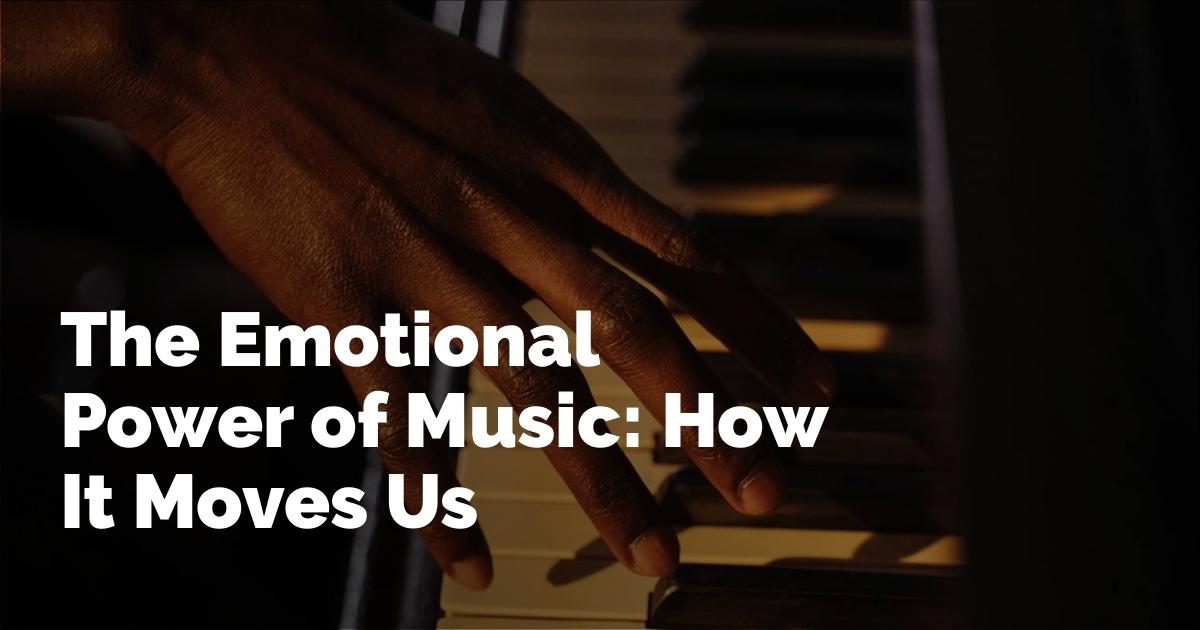Music has long been recognized as a powerful catalyst for evoking profound emotions within us, capable of eliciting chills and thrills that many listeners find deeply pleasurable. The emotional resonance of music is often regarded as the primary factor in its appreciation. But how exactly does music move us to such depths of feeling? Here, we explore the underlying reasons why music is such an effective medium for emotional expression and experience.
The Real Power of Music
Music's ability to blend human expression with sound makes it a formidable tool for stirring emotions. Certain features of music mimic or resonate with human expressive behaviors, grounding the belief that ‘music does you good’ in empirical studies.
Emotional Expression as a Core Value
Most music enthusiasts cite emotional expression as the most crucial factor in valuing music, influencing their decisions to purchase songs. The ability of music to evoke and express emotion is not merely subjective preference but is supported by significant empirical research, ensuring that the saying 'music does you good' holds truthful weight.
Conditioned Responses: Emotion by Association
Music is intricately tied to our experiences and memories. Certain types of music evoke specific emotions due to conditioned responses, or associations with memories of events in our lives. For instance, if one heard a particular piece during a happy period and another during a time of sadness, the music would later elicit those specific emotions by association.
Thus, the emotional impact of music often stems from its role as a trigger for recollecting past significant events. This form of emotional response highlights music's ability to act as a soundtrack to our lives, recalling the emotional tapestry woven from significant life moments.
Nostalgia as a Musical Trigger
Music is unparalleled in its ability to induce nostalgia, making it the number one trigger for reminiscence. Songs that frequently played during formative years or consequential life experiences can evoke intense feelings of nostalgia, transporting listeners back to those times and evoking the accompanying emotions. Notably, the feeling induced isn't about the music per se, but stems from its associative power to evoke memories.
Music as an Expression of Emotion
Music embodies a wide array of expressive qualities, capable of representing various emotions from melancholy to cheerfulness. The manner in which musical tones mimic human emotional expressions can be profoundly moving. Rapid tempos and high volumes often convey joy and energy, while slower, darker tones might express sadness. This mirroring of human emotion allows music to articulate emotion in a deeply recognizable and accessible way.
This mechanism operates similarly to how we perceive emotions in other people—subtle cues such as tempo, tonality, and rhythm reflecting the nuances of human expression.
The Element of Surprise in Music
Much like a gripping fictional narrative, music grips us with its element of surprise. Our enjoyment of narratives often lies in the uncertainty of what comes next. Songs can also provide this thrill of the unexpected, although familiarity can erode this sense of mystery. That's why fresh or live interpretations of familiar songs can still excite and engage us, reinvigorating our curiosity and emotional investment.
The Pleasures of Music
At its core, music is a sequence of tones arranged over time, yet its power to provide intense pleasure is extraordinary. Each tone, in isolation, might not seem significant, but together their arrangement creates experiences that are sometimes described as euphoric as those from addictive substances. This complex tapestry of sound acts on the brain to produce high levels of emotional satisfaction.
Experiencing Collective Emotion
In addition to how music affects individuals, it also has a powerful effect in social contexts. When people come together—such as at concerts or communal music-making events—collective emotional experiences emerge. This phenomenon is due to rhythmic entrainment, where individuals' bodily movements synchronize with the music, creating alignment and an emotional contagion among participants.
This synchronization fosters a sense of unity and shared experience, enhancing bonds between people. Such communal musical experiences can be seen in various subcultures that define themselves through specific musical preferences, reflecting music’s role in group identity formation and strengthening interpersonal connections.
Conclusion
Fundamentally, music’s potential to induce deep emotional responses is one of the primary reasons we engage with it—whether it's listening in solitude to alleviate stress or sharing vibrant experiences with others at live performances. As research supports, listening to music we love is not only enjoyable; it’s an emotionally enriching endeavor with profound abilities to impact our mental state and social connections. This elusive, powerful synergy between sound and human emotion continues to make music an essential part of our lives.
출처 : Original Source

